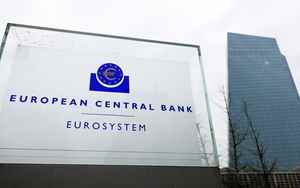(Finance) – With inflation in the euro area jumped to a new high of 8.1% year-on-year in May, four times higher than the ECB’s target, it is assuming that Frankfurt decides to act at the meeting on June 9th. They now seem to have been made there end of quantitative easing (QE) by July and the indication of a rate hike in July, while a certain flexibility will remain in the course of the following months. The guidance should indeed indicate the exit from negative territory, but the European Central Bank may not specify the pace of subsequent adjustments, given the diverging views within the board of directors on the need to implement a rate hike of 50 basis points. The ECB will also present its quarterly estimates, which are expected to show inflation of at least 2% for 2024.
“After the restrictive phase begun last December, where bond purchases were gradually reduced (with the interruption of net asset purchases under the PEPP and the announcement of a certain deadline for net purchases envisaged by the APP), the ECB could therefore be ready to take a further step towards normalization – explained Vivek Bommi, Head of European Fixed Income at AllianceBernstein – Incremental maneuvers, based on gradualism, optionality and flexibility: this is the strategy to keep the ECB’s options open to changes in economic variables and to circumvent the risk of recession “.
Analysts agree in excluding that the first rate hike is 50 basis points, while this cannot be ruled out for the month of September. “First of all, the European Central Bank said it was in favor of a gradual approach – noted Gergely Majoros, member of the Carmignac Investment Committee – We also believe that it is unlikely to start raising rates by 0.5% right away, for the same reasons the Fed did not opt for a 0.75% increase. That said, particularly strong inflation data in June would significantly increase the likelihood of the first rate hike coming in at 0.5%. In addition, investors should not rule out a 0.5% increase later, particularly after September, when the medium-term forecasts will be revised again. “
Despite a significant economic slowdown, analysts believe it is likely that there will be no recession this year for the time being. “The outlook of the ECB is uncertain in both directions – said Roxane Spitznagel, Economist at Vanguard – In case of cascading effects, we expect the ECB to be more aggressive than our baseline scenario. On the other hand, a ban on the sale of Russian gas it could cause a recession in the euro area, in which case we expect one interruption of the rate hike cycle. In this scenario, a potential revival of QE would be possible, especially in the event of market fragmentation “.
